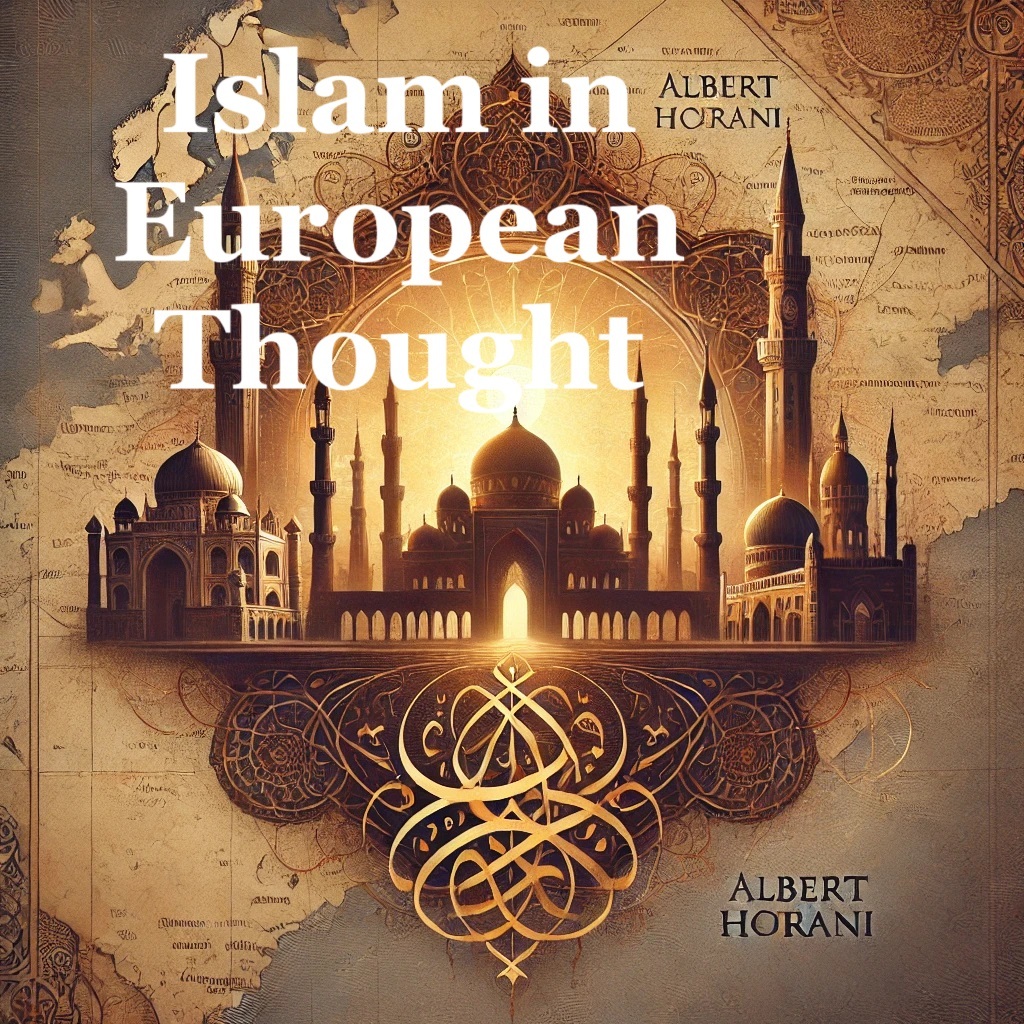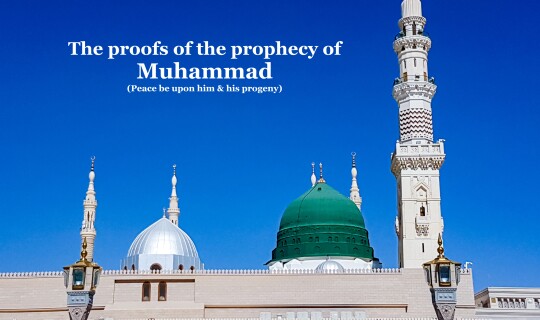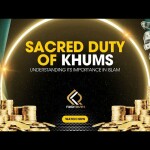Introduction
We are indebted to Albert Hourani for having written on a great variety of Middle Eastern, Arabic, and Islamic themes. His masterpiece, Arabic Thought in the Liberal Age, 1798-1939, written almost thirty years ago, is an indispensable source for those who wish to acquaint themselves with the intellectual history of the modern and contemporary Arab world and North Africa.
Since his early days at Oxford University as a young intellectual and lecturer and until his recent death, Albert Hourani, a Lebanese Christian grown up in British Palestine, had been totally engaged with the intellectual issues and problems of the Arab and the Muslim world. Concerning his History of the Arab Peoples (Cambridge: Harvard University press, 1991), published a few months before the book under review appeared, an eminent reviewer says,
To write a history of the Arabs as distinct from that of the other peoples with whom their affairs have been inextricably entwined is no easy matter. Since the seventh century and the advent of Islam, when the Arabs emerged from the Arabian peninsula to conquer an empire in the Middle East, North Africa, and beyond, the history of the Arabs has been inseparable from the history of Islam.
In the same vein, Hourani tackles a theme that is of value to Arabs, Muslims, and other Third World peoples who fell under European domination and colonialism in the nineteenth and twentieth centuries namely, the impact of Western hegemony on Eastern cultures, and, in our case, the cultures of the Muslim world. His insights into how European thinkers and travellers of the early modern period represented Islam and Muslims in their writings are still relevant to the current and complex relationship between the Muslim world and the West.
Modern Day Orientalism
One of Hourani's major goals in this book is to explicate the historical development and the intellectual substance of modern‑day Orientalism. In this he roughly follows the lines laid down by Edward Said in his now classic work, Orientalism. Nevertheless, Hourani does not agree with some of the main conclusions of Said. Edward Said is of the notion that "Orientalism" is a type of knowledge constructed for the purpose of dominating the Orient, which is in this case Islam.
As Said defines the term, it has a number of interdependent aspects: 1) It is an academic tradition. This refers to institutions and scholars who study the East, be they historians, philologists, or theologians. 2) It also refers to a style of thought based on a distinction made between the Orient and the Occident‑that the Orient is the "other." 3) It is also a Western type of knowledge that aims at dominating, restructuring, and wielding authority over the Orient. "Mr. Said," Hourani contends, "is right to say that `orientalism' is a typically `occidental' mode of thought, but perhaps he makes the matter too simple when he implies that this style of thought is inextricably bound up with domination, and indeed is derived from it." (p. 63)
It is true, Hourani maintains, that Western scholarship on Islam was motivated politically, and certain images of Islam, as a backward and totalitarian religion, were, and still are, reflected in the writings of many a Western scholar. But this was not the case with serious Orientalists. "E. G. Browne in England was a supporter of the constitutional revolution in Iran; Louis Massignon of the Algerian movement for independence; others, such as Hurgronje, used what influence they had in favour of a more sensitive and understanding attitude towards those whom their nations ruled." (p. 38)
Therefore, Hourani invites us, implicitly at least, to reexamine Edward Said's basic formulations, theses, and conclusions and study the relationship between Islam and the West in, perhaps, a more positive manner than does Said. It is true, Hourani argues, that at the level of religious encounter Islam was a problem for Christian Europe. But it is also true that another, no less important, attitude was at the center of the interaction between Christianity and Islam, and, later on, between secular Europe and the World of Islam, involving a deep exchange of ideas.
During the formative phase of Islam, distinguished Muslim theologians and thinkers, such as 'Ali al‑Tabari, Imam al‑Ghazali, and Ibn Hazm wrote major works in an attempt to refute the central doctrines and tenets of Christianity. There is no doubt that ascendant Islam then presented a religious, intellectual, and political challenge to Christendom.
The world of "Islamdom," to use one of Hourani's favourite terms, was in the process of expansion at all levels. As a result, Christianity ceased to exist as an organized political, and economic force in the Middle East and North Africa, and, for a good period of time, in Spain. Christians felt the Islamic menace deeply, and, therefore, some of them were compelled to study the reasons behind the success of the Muslim world and the ramifications of the universally‑oriented Islamic scholarship on their lives as the backward "other."
Isn't the Muslim world in a similar position today? Hourani ponders this questions, and proposes that because of modern Western political and cultural hegemony, better understood as colonialism, Arabs and Muslims were compelled to take a critical look at the nature of their decline, and formulate an appropriate religious, scientific, intellectual, and cultural response to the multifaceted Western challenge.1
In discussing the emergence and intellectual formation of modern Orientalist scholarship, Hourani points to two major characteristics, especially, of nineteenth‑century Orientalism: (1) positivism, and (2) missionary training and outlook. In the first instance, positivism, as a Western (American and European) scientific movement, encouraged the Orientalist to gather useful data and information on the Orient, its history, theology, philosophy, and culture.
In the second instance, however, missionary training gave the Orientalist a clear religious conviction and a specific mission: conversion of the non‑Christians, who were usually perceived as inferior to the white European Christians. The missionary Orientalist devoted his energy to two major areas of study: the Qur'an and the Prophet Muhammad. This is still the pivotal tradition in those leading (Christian) seminaries which promote Islamic studies both in Europe and the US.
Also, the ninteenth century witnessed the rise of a new type of Orientalism, one that was less religious and somewhat more liberal than its predecessor. This Orientalism is best exemplified by two main figures: Ernest Renan (1823‑92), a French Catholic, and Ignaz Goldziher (1850‑1921), a Hungarian born Jewish scholar. Hourani argues that although Renan lost his inherited Catholic faith, he "retained a basic seriousness in his search for truth." (p. 28) Renan fell under the spell of the school of philology, and basically believed that one could study a universal religion through the study of its basic terminologies, concepts, myths, and worldview.
Ignaz Goldziher, on the other hand, grew up in the secular liberal environment of Hungary in the 19th century, and though he was a highly secularized and assimilated Jew, he retained a concern for the study of Judaism as a monotheistic tradition. He believed that it was possible to study Judaism through studying the living spirit of Islam.
He opted to study Islam by examining two major principles: (1) the Shari'ah, and (2) the balance struck by Islam between Shari'ah and tasawwut. The spirit of Islam, Goldziher maintained, was based on a vision of "creating and maintaining a balance between the law, the articulation of God's word into precept for action, and mysticism, the expression of the desire for holiness." (p. 41)
Underlying Hourani's discussion of Orientalism is the notion that it is a complex, empirical, pragmatic, religious‑, and political‑oriented movement. A wise scholar, therefore, cannot overlook its wide scholarly activities, and its research into the origins of Islam, history, and theological structure and formation. In this regard, Hourani echoes the words of the late Fazlur Rahman (d. 1988), a distinguished Pakistani scholar at the University of Chicago, who realized the potential of Orientalism, as well as the shortcomings of modern‑day Muslim scholarship. To Rahman, writes Hourani, "The main work of the history of Islam . . . has been done by Western scholars, but the task should now be that of Muslims themselves."(p. 56)
Hourani considers H. A. R. Gibb as the best representative of twentieth‑century Orientalism. Gibb, who, in various writings and discussions, was deeply committed to bringing out the salient features of classical and modern Islamic intellectual history, was an immense intellectual figure, who represented a living force in the British academia at the time.
`The last of the universal Arabists,' Gibb argued on behalf of applying the most developed social science concepts and methods in Islamic studies. In addition to his profound understanding of Islamic intellectual history, as an "elite culture," i.e. the product of the Islamic literati class, Gibb endeavoured to bring to light the great transformations, changes, and movements in the life of the Muslim community and the life of common people. One such example is the study of sufi tarcqahs and their impact on Muslim societies.
To Gibb, as well as to Hourani, Sufism has always represented vital forces in Islamic societies, past and present. In a sense, Hourani implies that the study of the "elite culture" in Islam is insufficient, since it cannot shed enough light on the dynamics of "popular culture" and its often unnoticed contributions to the life of the Muslim community. In discussing Orientalism, one cannot escape the feeling that Hourani himself is part of this eminent silsilah (chain) of learning. Hourani concludes his discussion of Gibb by saying that he was an intellectual and spiritual murshid (guide) if not the qutb (pole) of oriental learning. In his portrayal of T. E. Lawrence and Louis Massignon,
Hourani is very sympathetic. He considers both of them as lost European souls searching for a meaning in the desert of the Orient. Hourani maintains that "for both . . . this world was somehow a forbidden one: they had a sense of exile, of loneliness in a desolate country, of seeking something which visible forms could not give." (p. 118)
Also, "For both of them, life and travel in the world of Islam was the experience by which they became aware of themselves." (p. 118) They sought a decisive confrontation with themselves, a subjective self‑examination, if you will, as a means of discovering the `alien self in their lives.
Although Hourani thinks that Lawrence imposed a high sense of literary order on his Seven Pillars of Wisdom (London, 1935), Massignon's work is more exceptional and lasting. The latter displayed concern for the plight of the Third World people, especially Muslims, and was distinguished by a sharp intelligence, a deep compassion, and great humility.
Tribute to Marshall Hodgson
In chapter three, "Marshall Hodgson and the Venture of Islam," Hourani pays tribute to the intellectual achievements of the late American historian and Orientalist, Marshall Hodgson (d. 1968). Hodgson wrote, The Venture of Islam: Conscience and History in a World Civilization, in three volumes (Chicago, 1974). As an historian, his vocation derived from the experience he gained from Western and Muslim historians alike.
That is why Hourani compares the first volume of Hodgson's Venture to Ibn Khaldun's Muqaddimmah. According to Hourani, Hodgson believed in the ability of creative individuals in changing collective realities and conditions. The idea of a "creative minority," in Hodgson's view, is not bound to a particular class, but is of an independent social and intellectual formation, and it is the only group that leaves behind the most lasting and distinctive cultural influence. From this vantage point, Hodgson analyzes the impact the high culture of Islam‑the culture of the `ulama'‑left on world history as well as the masses who were at the core of Islamic civilization.
In chapter six, "In Search of a New Andalusia: Jacques Berque and the Arabs," Hourani discusses, albeit briefly, the life and thought of the Frenchman who is the most sympathetic Orientalist toward Arabs and Muslims. Berque's example is that of a scholar who always attempted to comprehend Muslim culture and people from within.
To Hourani, Berque's books present a serious treatment of Arab society and "contain not a series of abstract ideas strung along a thin, straight line of exposition, but a continuous movement from the surface of society into the depth of ideas which move and explain it, and back again." (p. 131)
Just like Gibb, "Berque spoke of [the] need to integrate in his work insights gained from the social sciences, observations of the movements of a violent reality, and the memories and imperatives of his personal life." (p.133)
As pointed out above, the modern interaction between the West and Islam is undoubtedly a very complex process. Hourani turns to discussing in a sensitive style a major manifestation of this interaction, which is often discussed but rarely understood, namely, how traditional and high Muslim culture responded to the challenge of the West. The tradition of high culture was "created around a core of religious doctrines and laws." (p. 99)
And following Hamilton Gibb's analysis, Hourani argues that the literati class in Islam was keen at recording and transmitting a body of truth and knowledge, which was seen as a true representation of the inner spirit of Islam. This culture, protected by an unbroken chain of authority, had a major influence on the development of religion, culture, and ideas in Muslim societies. In other words, the silsilah of high culture lived on more or less uninterrupted by events until the end of the 18th century. In the words of Hourani,
By the eighteenth century, there seems to have been achieved a certain stability in the ideal human type here described: that of the man learned in tradition and law, initiated into a Sufi order within the bounds of the Shari'a[h], respectful of authority, wilting to serve it but keeping his distance from it, giving leadership to the urban population, linked by interest with the preservation of a fabric of ordered and prosperous city life, and having a certain fear and disdain of the forces of the countryside. (p.107)
This image of an ideal `alim started to change with the advent of European colonialism in Muslim lands, and the fast pace of political, social, and cultural changes borne by Muslim societies in this period justify a lasting impact, especially on the indigenous intelligentsia. Hourani says that, "We can notice in this period a deep disturbance in the lives of educated men, not only those trained in the new schools but also those formed in the traditional ways of thought; not only do their careers take different paths, but the ways in which they see their own lives begin to change." (p. 109) The new forces at play exerted a major influence on the traditional milieu, and, in many ways, the 'ulama' were the first ones to pave the way for a more progressive way of considering things.
This is best represented, according to Hourani, in the lives of two great men coming from this background, Muhammad Ba[y]ram, who came from a well‑established traditional family in Tunisia, and Muhammad Rashid Rida (d. 1936) of Lebanon (who later immigrated to Egypt and established the famous al‑Manar periodical after becoming one of the chief disciples of the Egyptian reformist `slim Muhammad `Abduh [d. 1905]). Both decided to choose new careers; both became journalists. Hourani comments on this situation by remarking that in both the cases, "there takes place a kind of mutation in the ideal type of the `alim" (p.113). The deliberate choice of a new path and vocation is "a sign of a disturbance in [themselves] as well as in [their] world." (p. 112)
Arab Authors
The last two chapters of the book discuss the way Arab authors in the nineteenth and early twentieth century responded to the intellectual and cultural challenge of the West. Hourani gives the example of Butrus al-Bustani, the editor of the first encyclopedia in modern Arab history, Da'rat al‑ma'arif, and the example of another Lebanese Christian, Sulayman al‑Bustani, the translator of Homer's Iliad. These two literary and intellectual efforts are important because
1) They highlight the contributions of Arab Christians to modern Arabic thought and life;
2) they prove the ability of the Arabic language, though having a rich poetic and stylistic tradition, to absorb new forms of literary expressions; and
3) demonstrate the need for the modern Arab intelligentsia to be open to the cultural tradition of the West and to assimilate as much as possible of Western intellectual achievements.
In sum, Albert Hourani's Islam in European Thought is a passionate and elegant piece of writing. It deserves to be read carefully and attentively.











